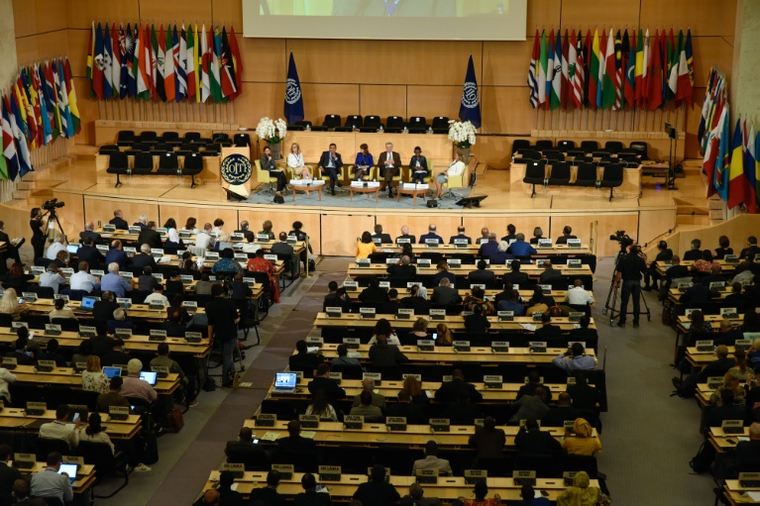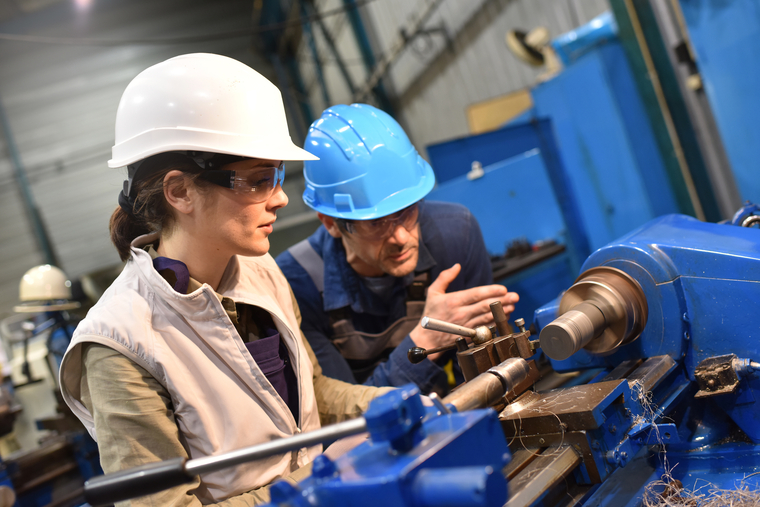Globalization has exacerbated inequality. We need to redesign a social globalization.
The Social G7, which was held in Paris on 6 and 7 June, was an opportunity to reduce social inequality while exploring all opportunities offered by transformations of labour. In addition to the G7 member countries, the European Union and international organizations (ILO, OECD), labour and business representatives were also closely involved in the Social G7, particularly through the L7 (Labour 7) and B7 (Business 7) engagement groups, as well as French, European and international social partners.
Find out our article on the outcome of this meeting, as well as the final communiqué and the tripartite Declaration adopted by the Ministers.
Four goals
Call to action for social justice in a global world
Promoting universal access to social protection in a changing world of work
Empowering individuals for the future of work
Ensuring gender equality in the world of work
The Social G7 had four goals which gave rise to tangible proposals aimed at reducing social inequality and fostering individual empowerment. Employment, labour and training policies were central.
Call to action for social justice in a global world
Widening inequality has led to growing mistrust of citizens in globalization and its possible benefits. That is why the Social G7 is keen to tackle this problem head-on and encourage solutions coordinated between stakeholders (governments, international organizations such as the ILO, IMF, OECD and World Bank, and social partners) in order to promote a fairer globalization.
One of the most effective means of restoring the coherence of overall action is to better incorporate international labour standards into the action programmes of international organizations, thus helping reduce social inequality both within each country and between the world’s countries and regions.
“There can be no sustainable growth without inclusive growth. [...] The multilateral system needs to be more effective. To be more effective, it has to better coordinate the economic and social dimensions of global governance.”
Muriel Pénicaud, French Minister for Labour

Promoting universal access to social protection in a changing world of work
The gap in access to social protection from everyday risks (such as disease, maternity, unemployment, age and disabilities) worsens inequality to the detriment of sustainable and inclusive growth. The Social G7 wants all relevant stakeholders, including international organizations, financial institutions, social partners, development agencies and the private sector, to come together in an alliance to foster universal access to social protection adapted to new risks facing workers, within G7 countries and worldwide.

Ensuring gender equality in the world of work
The digital transformation of the economy is giving rise to the emergence of new forms of employment and profound changes in working conditions. These transformations need to be accompanied to help workers retrain. With this in mind, massive investment in skills acquisition is a French priority at national level, with the Skills Investment Plan and Act for the Freedom of Career Choices, and at international level.
“It is our responsibility to find collective responses to the social impact of globalization and means to seize current opportunities. That is how we can guarantee decent work for all and shape the future of work that we want to see.”
Muriel Pénicaud, French Minister for Labour

Ensuring gender equality in the workplace
Gender equality, which President Macron has declared to be the great cause of his term, also needs to be a great global cause. The Ministry of Labour has launched a proactive policy, giving rise to the Act for the Freedom of Career Choices based on the principle of equal pay for equal work. Businesses now have an obligation to achieve results: the pay gaps that have been observed must be corrected by 2022.

The French Presidency of the Social G7 will help strengthen cooperation between the member countries and promote ambitious international standards in order to continue efforts made to foster gender equality and:
- foster the inclusion of women in the labour market;
- reduce the pay gap and improve access to positions;
- combat violence and harassment at work.
